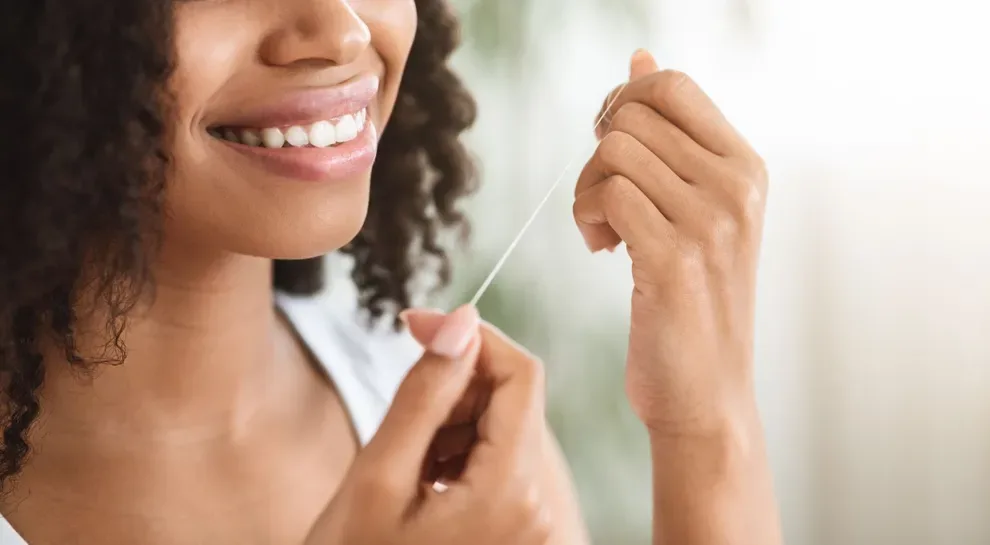How to Treat Gum Disease at Home: The Best Home Remedies

Table of Contents
- Can I Get Rid Myself of Gum Disease?
- Home Remedies
- What if Home Remedies Don't Work?
- What Do Expert Recommend?
- Top Treatments
- References
Even with regular dental treatment, some people are simply more likely to develop gum disease than others. If you are concerned about gingivitis or periodontitis, you can reduce your risk or manage symptoms at home with some home remedies, including homemade mouth rinses or baking soda toothpaste.
However, there is no substitute for regular checkups and cleanings at your dentist, and a good oral hygiene routine that includes brushing your teeth for two minutes at least twice per day, flossing or using interdental brushes, and using an over-the-counter mouthwash.
Can I Get Rid Myself of Gum Disease?
Periodontal disease, or gum disease, is an infection of the gums that can lead to inflammation, pain, sensitivity, bleeding, gum recession, and tooth decay. Although dentists commonly treat this problem, periodontitis is one of the leading causes of tooth loss.
The Centers for Disease Control and Prevention (CDC) reports that about 46 percent of adults, ages 30 and older, in the United States have gum disease. About 9 percent of adults struggle with severe gum disease.
Not only can untreated gum disease lead to bad breath and tooth decay, but it can also cause your teeth to become loose and shift out of alignment.
Mild gum disease, or gingivitis, might be tough to notice, but it can quickly progress to periodontitis without regular dental checkups and a good oral hygiene routine at home. While good oral hygiene can be boosted by at-home remedies, which can reduce how quickly gum disease develops, the best way to end periodontitis or gingivitis is with a dentist’s help.
Home Remedies to Stop Gum Disease & Support Oral Health
Even with regular dental checkups and cleanings, you might still develop gum disease. Some people are simply more prone to this condition than others, even with good oral hygiene.
If you have consistently struggled with gum disease, you may consider adding some home remedies to your oral care routine. These at-home techniques can help to reduce plaque buildup and mouth bacteria, and improve your overall oral health.
Potentially useful home remedies include the following:
Saline mouth rinse: One of the most recommended options for boosting your oral hygiene is a simple mouth rinse that combines warm water and table salt. The American Dental Association (ADA) recommends this simple saline rinse after tooth extraction, as it is gentler than most over-the-counter mouthwashes (especially those containing alcohol), and reduces potential gum infection. You do not need to have a tooth removed to benefit from a saline mouth rinse since it kills many harmful bacteria in your mouth. Try this rinse once per day if you are concerned about gum disease. Then, contact your dentist to talk about your specific situation.
Homemade mouth rinses: Drug stores and grocery stores have dozens of types of over-the-counter mouthwash available, but many of these contain alcohol or other harsh ingredients that can lead to a burning sensation. If you want to avoid this or enhance your existing mouthwash, you can add some home remedies like tea tree oil, sage extract, or aloe vera juice.
Oil pulling: This is a folk remedy practiced in ancient India and some modern societies, including Western cultures, where it has become trendy over the past several years. Coconut oil pulling studies suggest that some antimicrobial properties in this type of oil can help. Pulling with sesame oil is another practice, but it has fewer studies on it and less scientific support. When added to your existing oral hygiene routine, oil pulling might improve your oral health. By itself, however, it is much less effective.
Baking soda toothpaste: Several toothpastes have added baking soda, but if you do not already have one of these, you can simply sprinkle some baking soda on your toothpaste before you brush your teeth. Baking soda, or sodium bicarbonate, is basic, so it can neutralize the acids that bacteria in your mouth produce. This can reduce the buildup of plaque. Baking soda is also slightly abrasive, so it can scrub superficial stains off your teeth. However, using too much baking soda can wear down the enamel on your teeth, which can lead to an off-white or stained appearance. Use baking soda sparingly, only if you are prone to gum disease or plaque buildup, or your dentist recommends using it regularly.
As additions to your daily oral hygiene routine, any of the above home remedies to treat gum disease can be very useful. However, it is important that these are additions to your routine rather than replacements for a dentist-recommended routine. These home remedies are not effective on their own.
What to do if Home Remedies Don't Work
If you’ve tried home remedies and improved your daily hygiene routine but are still experiencing symptoms of gum disease (such as gum bleeding and swelling), it’s important to visit a dentist to determine your next treatment steps.
If you were already in the advanced stages of decay or gum problems before you started trying to correct the issue on your own, your home remedies and hygiene routine may not be enough to counter the damage already done. You may need professional help to regain control of your oral health. You may have severe decay and bacteria buildup that only a dental professional can effectively remove.
Tartar buildup, for example, can only be removed by a dental professional. Tartar is hardened plaque bacteria that binds itself to teeth. It irritates gums and causes gum inflammation, which is a major cause of gum disease.
So, even with a diligent oral hygiene routine and the most effective home remedies for gum disease, you may be fighting a losing battle if you’re trying to help your gums as they’re being continuously irritated by tartar or other problematic bacteria buildup that simply can’t be overcome without professional help.
An infection, for example, may require antibiotics. Ignoring the need for professional treatment could increase the risk of the infection spreading to other teeth, your mouth and jaw, and even other parts of your body.
Another reason to seek professional help if home remedies aren’t working to correct your gum issues is the possibility that an underlying health issue may be the cause (or a factor). Chronic health conditions like diabetes, arthritis, and kidney problems have been linked to gum disease.
Your gum health is connected to your oral health, which relates directly to your overall health and well-being. A qualified dental professional may be able to identify signs of a related health problem and set you on the path to treatment.
What Do Dental Experts Recommend for Gum Disease Treatment?
The two best ways to maintain your oral health and reduce gum disease are to visit your dentist for a checkup and cleaning at least once per year, or as they recommend, and to develop a good oral healthcare routine at home.
Dentists recommend an oral hygiene routine that includes:
Brushing your teeth at least twice per day, for two minutes each time.
Using a toothpaste with fluoride to improve tooth enamel strength.
Brushing your tongue and the roof of your mouth after brushing your teeth to help remove bacteria.
Flossing or using interdental brushes to remove food particles and plaque from between your teeth.
Swishing with mouthwash.
New studies are always updating dental hygiene information, so if you are interested in adjusting your at-home oral care practices, talk to your dentist during your routine checkup. For example, a recent study suggests that using mouthwash after brushing your teeth can actually prevent fluoride from providing enamel support since it washes this mineral away. Instead, use mouthwash and floss your teeth before brushing, to remove as much plaque as possible and still get fluoride’s benefits.
If you do develop gingivitis or periodontitis, your dentist will create a treatment plan to eliminate this infection. This might include medicated mouthwashes, deep cleanings, and more frequent dentist visits for cleanings and examinations.
Following your dentist’s advice and using prescriptions as recommended can stop this infection and prevent harm to your overall oral health, including tooth decay and loss.
Top Treatments for Treating Gum Disease
Dental visits and cleanings: Even if you are planning on using home remedies to treat your gum issues, the first step in treatment should be a visit to your dentist. An exam can determine if you have any underlying health issues that need to be addressed before starting home care, such as an infection requiring antibiotics or a cavity needing filling.A cleaning will ensure that any buildup of tartar is removed, so you start with a clean slate for a home routine.
Improved dental hygiene routine: A consistent and effective daily oral hygiene routine is key to successfully improving gum health. In order to reduce plaque and ensure bacteria isn’t building up daily, you should brush twice a day with a soft toothbrush and toothpaste, and floss daily.An antimicrobial mouthwash should also be used. You can make your own with essential oils and natural ingredients or use an alcohol-free store-bought option.
Clean and moist gums: Staying hydrated is vital to gum health, and drinking more water will help your gums heal. Water acts as a natural cleaner for the gums, rinsing away bacteria and particles.It also protects against dry mouth, which will limit your saliva production and thus make you more prone to harmful buildup. Saliva also fights off bad bacteria. Gentle saline mouth rinses can also help keep your gums and mouth moist.
